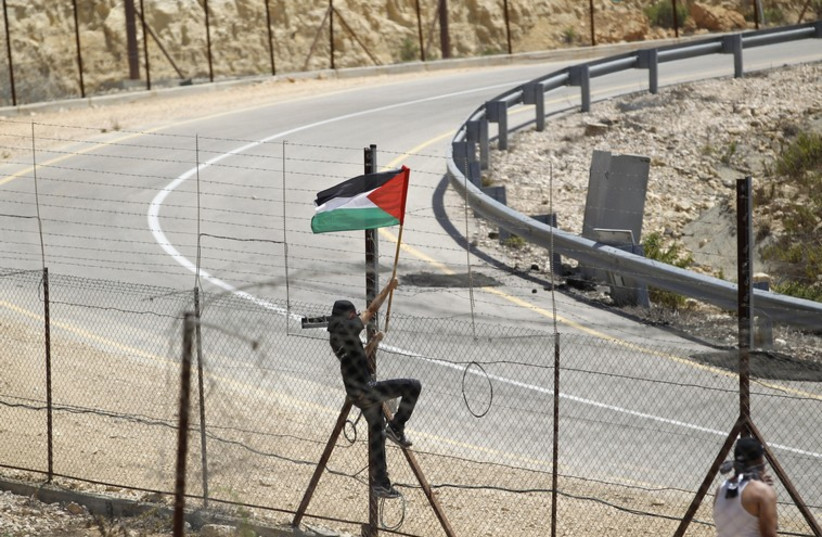The IDF is working to prevent future terrorist attacks in Israel in hopes of calming the current tense situation and preventing an escalation of violence and perhaps an outbreak of war.
“Ten attacks have been prevented in the last two weeks thanks to intelligence and operations,” said IDF Chief of Staff Lt.-Gen. Aviv Kohavi during the change of command ceremony for the Israel Air Force on Monday.
“Even now, we are focused on thwarting additional attacks. This is the IDF’s main mission. We will reach every neighborhood, every street, house or basement in order to get our hands on terrorists. We will act wherever necessary and in all ways to stop terror,” he said.
During a visit to the security fence between Israel and the West Bank on Friday, Kohavi said that while the recent wave of attacks might continue in the coming month, the security establishment is working to deter future attacks carried out by Palestinians.

Among the troop reinforcements were members of the Home Front Command’s Kedem Battalion, part of the command’s Search and Rescue Brigade.
While the Home Front Command usually trains for emergency scenarios, the brigade has for the past few years been taking part in operational missions in the West Bank. The forces were deployed last week along the Seam Line near Modi’in in order to prevent Palestinians from infiltrating into Israel, to deal with riots and to protect civilians in the area.
“The troops understand the mission and its importance,” said Kedem Battalion commander Lt.-Col. Igal Raskin. “They are doing it professionally, hours after hours, day in day out.”
There are some 150,000 Palestinians who enter Israel legally from the West Bank. Another 20,000 Gazans have received permits to work in Israel. According to some estimates, another 30,000 cross through holes in the West Bank fence each day, mostly men who have not received permits but want to work in Israel.
The deadly terrorist attack in Bnei Brak was carried out by Diaa Hamarsheh. The 27-year-old Palestinian from the Jenin area in the northern West Bank crossed the fence illegally through an agricultural crossing used by farmers with his car that had Israeli license plates. According to Yediot Aharonot, Hamarsheh was able to get through the gate with the help of someone who broke the lock.
While Raskin said the atmosphere was “calm,” there are concerns about the condition of the fence and the holes that are found along it that might allow another potential terrorist to get into Israel and carry out another deadly attack.
“Wherever there is a hole, we are watching it, either by troops on the ground or by observation posts who can direct troops to the spot as fast as possible [if there is an infiltration],” he said. “Even a gate is a hole in the fence at the end of the day, like a door is a hole in a wall. We know the issues and we are giving tactical answers to them.”
According to Raskin, the whole point of reinforcing troops and their placement along the Seam Line is to allow the battalions inside the West Bank to operate at full force.
Defense Minister Benny Gantz last week ordered that the defense establishment prepare a work plan to build a security barrier at key points along the Seam Line and to close the holes along the fence.
The work has been estimated to cost more than NIS 2-3 billion, and according to Army Radio will not come at the expense of the construction of the barrier along the Lebanese border, which is considered a priority.
Army Radio reported on Monday that Kohavi approved a plan to build a concrete fence from the area of Salim in the Northern Triangle area near Umm el-Fahm to the outskirts of Jerusalem.
But with estimates that the work can take up to a year and with troops likely to remain on high alert until after the month of Ramadan, forces will remain along the Seam Line for at least the next several weeks in order to protect Israeli civilians.
“This is our mission and is why we are here,” Raskin said. “We are prepared for everything, here 24/7, and will do everything to prevent the next attack.”
